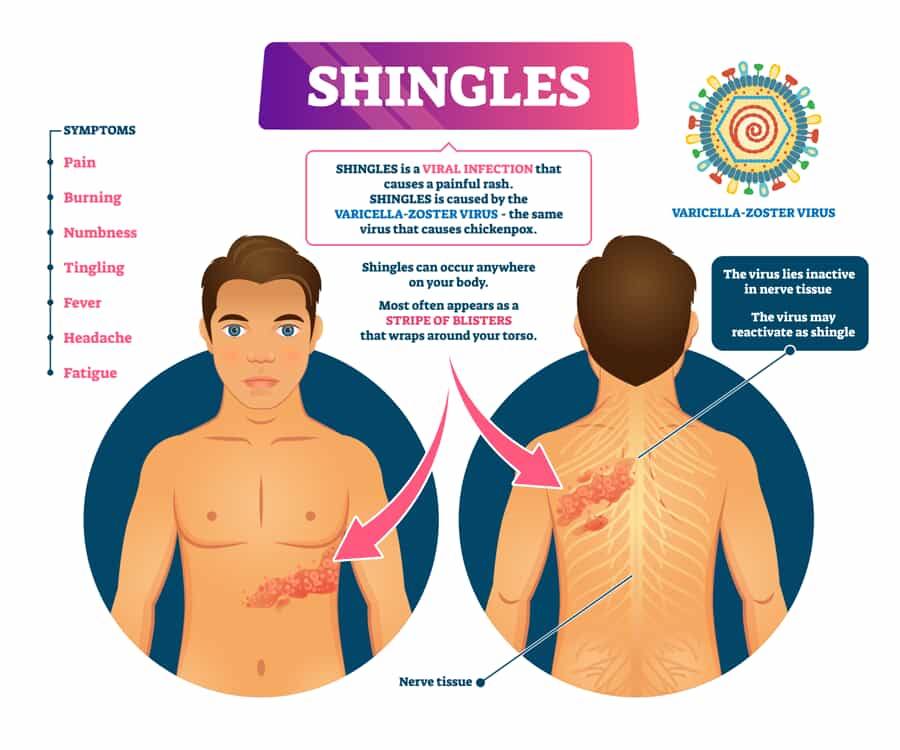Shingles is a viral infection caused by the varicella-zoster virus (VZV), which is the same virus that causes chickenpox.
Advertisement
Shingles can be uncomfortable and painful, but for most people, it is not considered dangerous. However, some individuals may be at a higher risk of experiencing complications that can be serious.
One of the most concerning complications of shingles is disseminated herpes zoster. This occurs when the virus spreads beyond the skin and affects other organs, such as the lungs, liver, or brain.

Disseminated herpes zoster can be life-threatening, particularly in individuals with weakened immune systems. Symptoms may include fever, confusion, and difficulty breathing.
Advertisement
Another potential complication of shingles is postherpetic neuralgia (PHN), which is a type of nerve pain that can last for several months or even years after the shingles rash has healed. While PHN is not life-threatening, it can significantly impact a person’s quality of life, causing chronic pain, sleep disturbances, and depression.
While shingles is generally not life-threatening, it is important to take precautions to prevent the virus from spreading and causing serious complications. This includes getting vaccinated against shingles and seeking medical attention promptly if you develop symptoms of shingles.


Leave a Reply